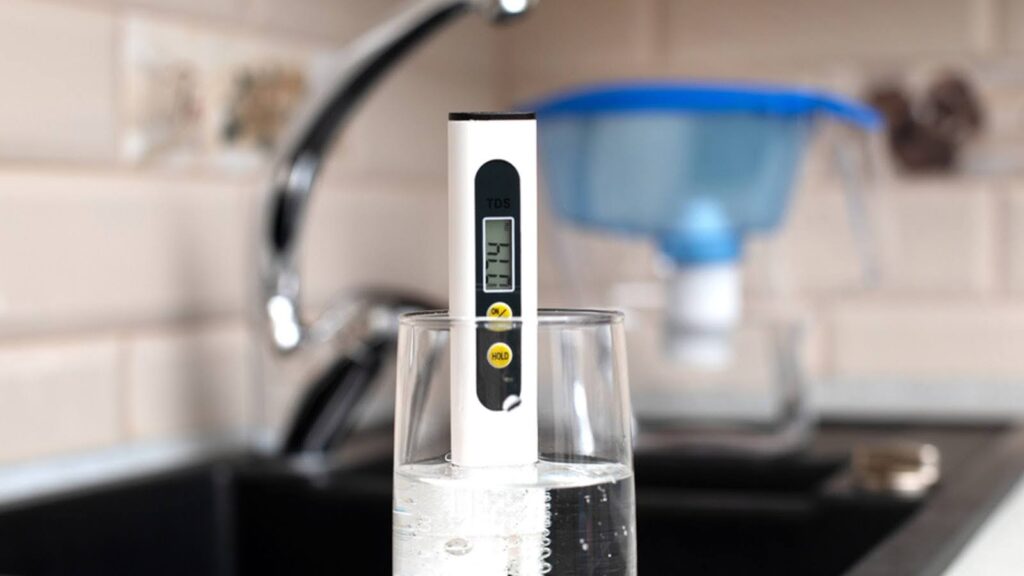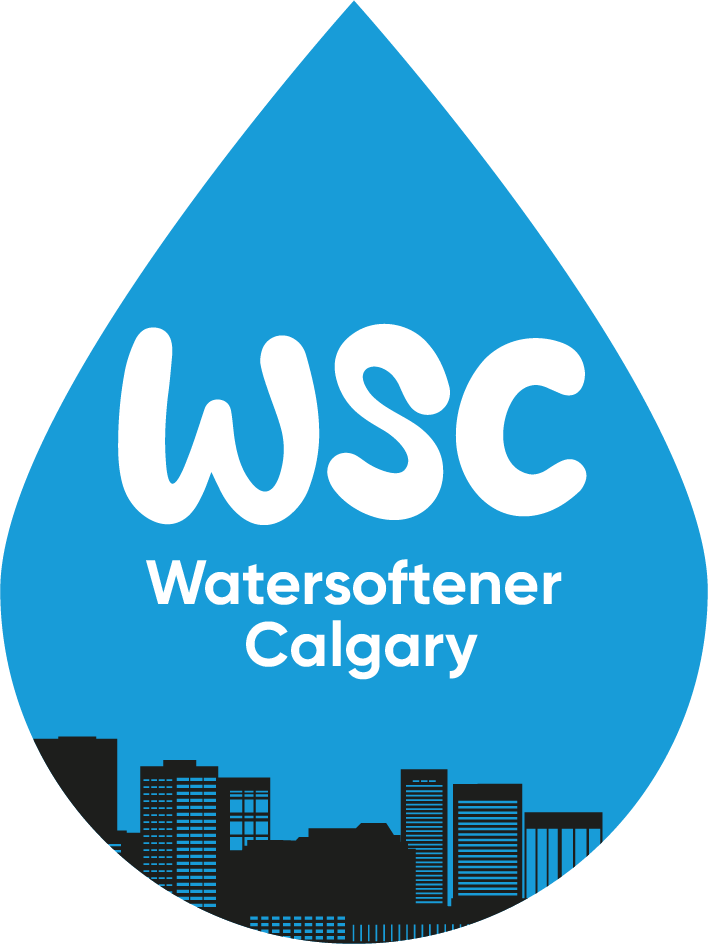For many homeowners in Calgary, hard water isn’t just a minor nuisance; it’s a daily frustration that quietly drives up costs and impacts the quality of life. From cloudy glassware to itchy skin, stiff laundry, and shortened appliance lifespans, the impact of Calgary’s hard water is felt in every room of the home.
Calgary’s municipal water is primarily sourced from the Bow and Elbow Rivers. According to the City of Calgary, average hardness levels are about 180 mg/L as CaCO₃, which classifies it as very hard water. That means every shower, laundry cycle, and cup of tap water carries a high concentration of calcium and magnesium minerals. Over time, these minerals build up inside pipes, water heaters, and appliances, reducing efficiency, restricting flow, and adding unnecessary repair or replacement costs.
This comprehensive guide breaks down the science, technologies, costs, and environmental considerations behind water softening systems, with a specific focus on what works best in Calgary’s unique conditions.
Table of Contents
ToggleWhat Is Water Hardness?
Water hardness measures the concentration of dissolved calcium and magnesium in water. While safe to drink, hard water has costly side effects, clogged plumbing, underperforming appliances, scale in humidifiers and water heaters, and even dry skin or hair.
Hardness Scale
| Hardness Level | mg/L (ppm) as CaCO₃ | Grains per Gallon (GPG) |
| Soft | 0 – 60 | 0 – 3.5 |
| Moderately Hard | 61 – 120 | 3.6 – 7.0 |
| Hard | 121 – 180 | 7.1 – 10.5 |
| Very Hard | > 180 | > 10.5 |
Calgary consistently falls in the very hard range at ~180 mg/L. Without treatment, the result is scale buildup in kettles, inefficient dishwashers, reduced water pressure, and higher monthly utility costs.

How Water Softener Technologies Work
The most common and effective method is ion exchange, where calcium and magnesium ions are swapped with sodium or potassium ions.
Ion Exchange Process:
- Hard water passes through a resin bed charged with sodium or potassium.
- Resin captures hardness minerals and releases sodium/potassium.
- Once saturated, the resin regenerates using a brine solution.
Main Components:
- Mineral Tank – where softening occurs
- Brine Tank – holds the regeneration salt solution
- Control Valve – manages water flow and regeneration cycles
Other technologies like TAC conditioners, reverse osmosis, and electronic descalers also play roles in certain Calgary homes.
Comparing Water Softener Technologies Calgary
a) Salt-Based Ion Exchange Softeners
- Best for: Most Calgary homes
- ✅ Highly effective, proven results
- ❌ Requires salt and regular regeneration
b) Salt-Free Conditioners (TAC/NAC)
- Best for: Environmentally-conscious homes or those on septic systems
- ✅ Low maintenance, no sodium added
- ❌ Less effective in very hard water like Calgary’s
c) Reverse Osmosis (RO) Systems
- Best for: Drinking water purification
- ✅ Excellent taste and purity
- ❌ Expensive for whole-home setups
d) Magnetic & Electronic Descalers
- Best for: Supplemental protection
- ✅ Easy install, no chemicals
- ❌ Doesn’t actually soften water
e) Hybrid Systems
- Best for: Families who want both filtration and softening
- ✅ All-in-one solution, compact designs
- ❌ Higher upfront cost
What Works Best for Calgary Homes and Businesses?
Given Calgary’s very hard water, salt-based ion exchange systems remain the most effective choice. They completely remove calcium and magnesium, protecting plumbing, appliances, and even your furnace humidifier system.
Recommended Add-Ons for Calgary:
- Sediment Filters – protect resin from river sediment
- Carbon Filters – reduce chlorine and improve taste
- Twin-Tank Systems – ideal for large households or commercial spaces
Cost of Water Softener Systems in Calgary
- Equipment Costs:
- Standard ion exchange: $1,000 – $1,500
- Digital/metric units: $1,800 – $2,500
- Hybrid filtration/softening: $2,500 – $3,500+
- Installation Costs:
- Typical install: $300 – $600
- Complex plumbing adjustments: $700+
- Ongoing Maintenance:
- Salt: $10–20/month
- Annual servicing: $100–$200
- Filter changes: $60–$100/year
5-Year Total: ~$2,000–$4,500
Installation and Maintenance Best Practices
- Install at the water main entry point
- Ensure bypass valve and proper drain access
- Refill salt regularly
- Clean the brine tank annually
- Replace resin every 5–7 years
- Sanitize the system once a year
Environmental & Health Considerations
- Sodium: Adds ~7.5mg per litre (minimal, but relevant for sodium-restricted diets)
- Eco Options: Salt-free conditioners, potassium chloride in place of sodium, or RO systems for drinking water only
- Wastewater: Brine discharge is not ideal for irrigation; consider efficient metered systems
Common Buyer Mistakes to Avoid
- Skipping a professional water test
- Buying oversized or undersized units
- Choosing based only on price (warranty and lifespan matter more)
- DIY installs without plumbing knowledge
Why Work With a Local Calgary-Based Expert?
- We know the water: Our solutions are tailored for Calgary’s hardness and mineral profile.
- We’re nearby: Quick support, no shipping delays, and responsive service.
- We customize: Every home’s water profile is different, so we design around your needs.
Working with a Calgary water softener specialist ensures that you’re not just buying a unit, but investing in expertise, high-quality installation, and long-term protection.
Conclusion: Softer Water, Stronger Living
From stubborn soap scum to scaling inside your appliances, Calgary’s hard water can quietly cost you time and money. The right water softener doesn’t just solve a plumbing issue; it protects your home, extends appliance lifespan, and improves your family’s daily comfort.
At Water Softener Calgary, we help you find a system that matches your household’s needs and budget.
Email us: hello@watersoftenercalgary.ca
Book your free water test and discover the best system for your home.
Because better water isn’t a luxury in Calgary, it’s a smart investment.



